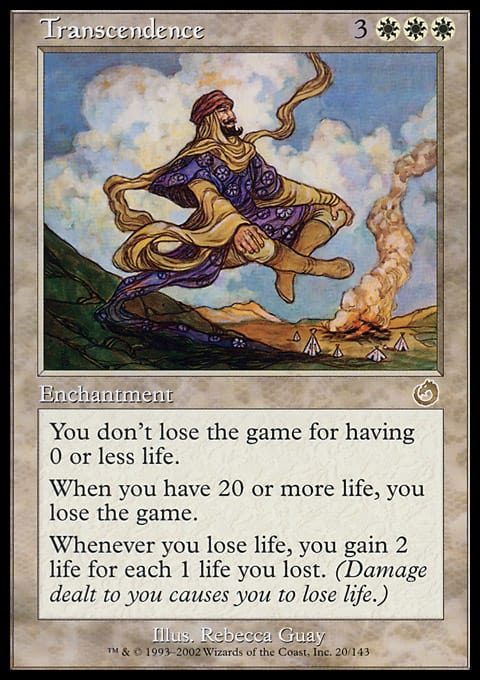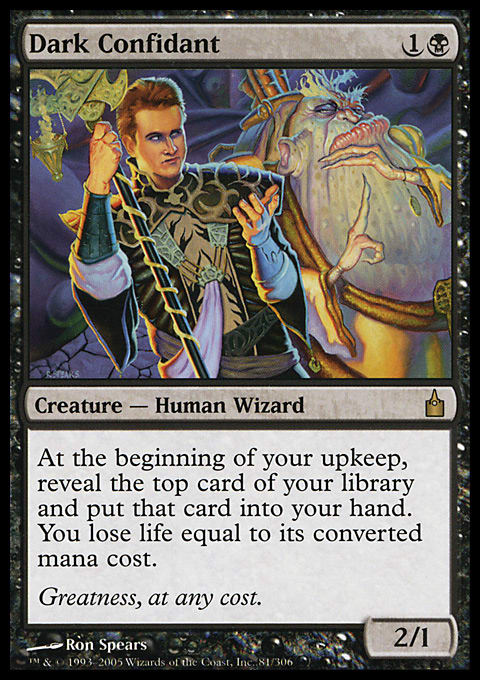Alternate Working Title:How to Lose Friends and (Try to) Win Matches
For anyone who is lucky enough to not be involved in the almost daily Magic drama (and if you want to make your life a little bit more miserable and start paying attention, you can just follow me on Twitter @dieplstks), there was a new Infraction and Penalties Guide (IPG) released in around December that was out for what felt like two days before being retracted.
This document had some “interesting” quirks such as making Transcendence a Legacy-playable card—you could just choose to not gain the life (and there was nothing your opponent could do about it)—and also introducing, because the rules worked differently at competitive/regular RELs, the possibility that one day, a PT-winning deck might not be playable at FNM. When the document was retracted, they promised to make a new one and release it as soon as the kinks were sorted out, but with a GP almost every week, the new IPG was essentially forgotten about. On April 2, the document was finally released, and while the magnitude of its changes are not on the same level as the December update, the changes will have a somewhat significant impact on tournament play.
I. Rationale
The primary reason for the IPG changes was the decision to no longer print the word “may” on cards—which led to two major negative consequences:

- Players had to remind their opponents of beneficial effects, which led to lovely situations such as being at 8 life with lethal on board and reminding your opponent to put the eighth counter on his Shrine of Burning Rage.
- Judges don’t want to hand out penalties for players forgetting their own beneficial triggers. The upgrade path for missed triggers (which was a GRV, meaning warning → warning → game loss) led to particularly forgetful but honest players receiving game losses for not helping themselves (players already receive enough losses for doing this; do we really want to hand out more?)
II. The Changes
So, you’re probably wondering what actually changed by now (or you’re just waiting for me to make fun of myself; that part may or may not come later) and reading the IPG (or even just Toby’s article) is quite the laborious task, so I’m going to sum up the changes as succinctly as I possibly can here.
Please note: These changes only matter at events at an REL of competitive or above. You are still responsible for opponents' triggers at Regular REL.
- You are no longer responsible for any of your opponent’s triggers.
- A trigger is considered missed as soon as the controller of that trigger takes another game action.
- Some abilities are lapsing,* which means that some abilities, if not caught in time, are just completely ignored, and no penalty is given.
- The time frame for lapsing triggers breaks the turn into three parts: pre-combat, combat, and post-combat. If a lapsing ability is noticed outside of the part of the turn in which it triggered, it is treated as though it didn’t happen.
- Triggers that are not lapsing follow the same rules they did before (except they are placed on the bottom of the stack instead of resolving immediately), meaning that they have to be noticed within a turn cycle.
III. Angle Shots
Any system of rules will inherently allow some behavior that seeks to derive some advantage from the system of rules being in place. There has been a lot of discussion over the past two weeks over what constitutes a “Jedi mind trick”as opposed to what’s just scumming someone, and at the end of the day, it’s up to you to determine what level of treading this line you’re willing to play; the fact that I list something here does not mean I endorse or would take advantage of these angles—I simply want to point out what’s allowable under the new IPG.
A. Making Opponents Miss Triggers
The most obvious angle shot under the new IPG is to trick opponents into missing their own triggers. Your goal here is to make your opponent take a game action that is supposed to take place after the trigger is supposed to resolve. This is most easily accomplished through getting your opponent to advance the game to the next phase, but there are other ways to accomplish this as well, and those will be looked at in the examples below.
Example 1 – Allison is at 7 life and against Nate, who has a Shrine of Burning Rage with 6 counters at the end of Allison’s turn. Under the old IPG, Nate would be guaranteed to receive his counter (since even if he forgot, Allison would have to remind him), and Allison would be dead. However, under the new IPG, as soon as Nate takes a game action after the trigger on the Shrine was supposed to resolve, the counter is just forgotten; it is therefore Allison’s objective to make Nate draw a card before he remembers the counter on the Shrine. Either silence or something such as saying, “I have an effect during your draw step,” would be Allison’s best bet to stay alive here.
Example 2 – Nebu controls a Sulfuric Vortex, and it’s Abe’s turn, but because Nebu controls the trigger, it is his responsibility to remember the Sulfuric Vortex. In order to avoid losing the 2 life, Abe must either make Nebu take a game action or enter into the combat segment of the turn (as Vortex is a lapsing ability).
B. Strategic Judge Calls
Because you are no longer required to remind your opponent of any of his or her triggers, you don’t have to call a judge when one is missed, but you can choose to if you want. If the trigger is non-lapsing, it will result in a warning for GRV – Missed Trigger for the opponent (and no penalty for you) when it is noticed during the course of a turn cycle. Because this choice is available, it opens up the possibility to choose whether to call a judge based on strategic criteria (rather out of obligation).
There are two major reasons you want to call a judge over a non-lapsing ability (you probably never want to call in regards to a lapsing ability since those are almost exclusively beneficial to your opponent): Either your opponent has warnings for previous missed triggers or you think he is likely to forget more triggers in the future, leading to a game loss; or you are strategically advantaged if the trigger resolves.
The first case is quite simple; the upgrade path for GRVs is warning → warning → game loss, so if you know your opponent has had multiple warnings for missed triggers in the previous rounds of the tournament, there’s no reason not to cash in on the free win. Similarly, if you think your opponent is likely to forget multiple triggers during the course of your match, the slight disadvantage of that trigger resolving may be outweighed by the benefit of a possible game win. The second case is more complicated and will be examined through a series of examples.
Example 1 – Bob controls a Dark Confidant and is at 9 life. He forgets the trigger during his upkeep and Kate notices, but she doesn’t want Bob to draw the extra card at that moment, so she chooses not to call a judge. However, during Kate’s turn, Bob is attacked down to 2 life, and the Confidant trigger is now much more appealing as it has a chance of outright killing Bob. Kate can now call a judge (since a turn cycle still has not passed), who will place the trigger on the stack and give Bob a warning for the missed trigger.
Example 2 – Jade controls a creature with echo that just came into play last turn, and she forgets to pay the echo cost. Chris notices, and while he doesn’t want the creature on the battlefield, he knows he can wait until Jade makes decisions based on that card being in play to then call a judge (which will result in the creature with echo dying—the default action is not paying). Jade attacks with all creatures she controls (which would normally be lethal), and after blockers, Chris calls a judge.
Example 3 – Randy controls a Selhoff Occultist, has three cards in his library, and has a Desperate Ravings in his graveyard; Brad controls a Witchbane Orb. During Brad’s turn, a creature dies during combat, and Brad notices the Occultist trigger was missed, but he is also hoping Randy casts his Ravings at end of turn. When Randy does so, Brad calls the judge after the Ravings resolves, forcing Randy to mill the last card in his library.
Conclusion
The new IPG was introduced in order to fix some issues that triggers were causing at competitive events. While the fix met the goals it was trying to address, it—as with any system—also opened up some new ways to take advantage of the rules. While I don’t advocate for any of the techniques described above (and I don’t foresee using any, but don’t hold me to that), players should know what tools are available to them—and more importantly, to their opponents—when playing under the new system.
– Chris Mascioli
@dieplstks on Twitter
* Lapsing abilities are defined in section 3.1 of the IPG and are abilities that only do some combination of the following:
- Cause you to gain life
- Deal damage to an opponent or causes an opponent to lose life
- Cause an opponent to discard cards
- Instruct you to look at and/or rearrange cards in a zone
- Put cards into your hand from your graveyard or the exile zone
- Put a permanent onto the battlefield under your control or give you control of a permanent
- Put counters linked to a beneficial effect (such as +1/+1 counters or charge counters) on one or more permanents you control
- Give one or more permanents you control +X/+Y or a beneficial ability
- Untap one or more permanents you control
- Give you additional phases
- Exile, deal damage to, destroy, tap, give −X/−Y to, or put counters associated with a detrimental effect (such as −1/−1 counters) on one or more permanents controlled by an opponent
- Instruct an opponent to exile a permanent he or she controls or put a permanent into his or her library or graveyard
























